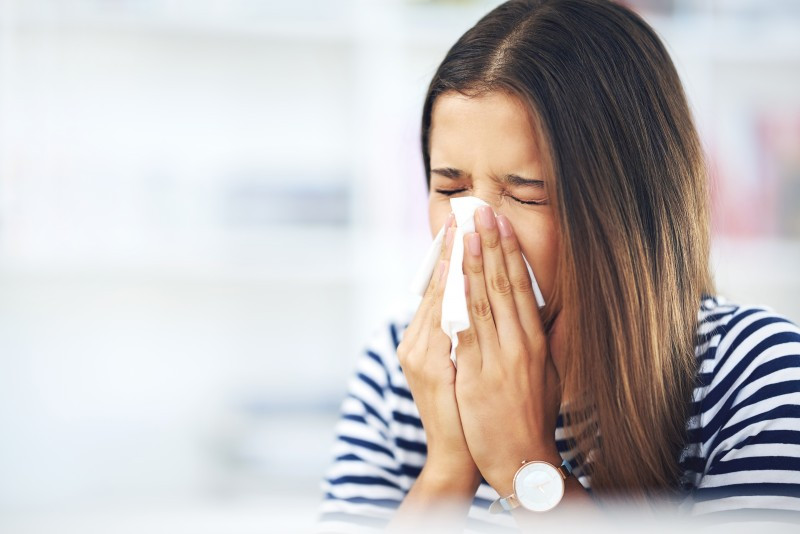Fall allergies are an expected nuisance for many. Here is a look at what causes fall allergy symptoms, accompanied by five remedies that can reduce the severity and duration of fall allergy symptoms. Fall Allergies vs. Spring Allergies There are differences in the seasonal allergies between what many people experience in the spring compared to what hits them in the fall. Spring allergies are the result of pollen from trees and grass. On the other hand, fall allergies are largely the result of ragweed pollen as well as fungi that can grow both indoors and outdoors in areas where moisture collects. Ragweed and the pollen from ragweed flourishes in the late summer and fall months, peaking between August and October. It is common throughout the northern, southern, and the midwestern parts of the U.S. The windier and wetter the fall season, the more ragweed's pollen tends to spread. While the triggers for fall allergies are different from spring, they can cause symptoms that are just as annoying. Roughly 75% of persons who experience spring allergies also experience fall allergies. Symptoms can include a runny nose, watery and/or itchy eyes, sneezing, coughing/congestion, and the formation of dark circles under the eyes.
Remedies for Fall Allergies
The best way to prevent fall allergies is to avoid exposure to allergens. However, this can be difficult and next to impossible if you spend any time outdoors at all and/or near areas that could have mold present. If you do experience fall allergies, these following supplements and nutrients might help reduce the symptoms and/or the length of your symptoms
- Vitamin D has been shown to have a positive effect on the immune system functions relative to fall allergies. Supplementing with vitamin D can be especially beneficial for those who are deficient and experiencing fall allergies.
- Eucalyptus oil can help relieve congestion because it acts as an expectorant. It can also produce a cold feeling in the nose that can enhance airflow and relieve sinus pain. Stinging nettle is helpful in reducing the symptoms of fall allergies. Stinging nettle has antioxidant and anti-allergy properties, which are due to its effect in reducing the histamine-1 receptor. This effect comes from the polysaccharides and bioflavonoids contained in stinging nettle.
- Butterbur is an herb with anti-inflammatory effects, and it has been shown to reduce the symptoms of seasonal allergies. One study has shown butterbur to be as effective as Zyrtec, a leading allergy medication, when it comes to warding off allergy symptoms.
- Quercetin is a bioflavonoid found in various vegetables and in red wine, and is commonly made into an oral supplement. Quercetin has antioxidant and anti-inflammatory properties, and is also an antihistamine. Separately, it can also block other substances in the body associated with seasonal allergy symptoms.
Seasonal allergies can be a real pain. Even just one of them, say, a runny nose can by itself put a huge dent in your quality of life for the time being. It is best to be prepared with remedies to ward off the symptoms of seasonal allergies, rather than allowing them to run their course unabated. Talk to your doctor about using one or more of these remedies this autumn if you expect you will experience seasonal allergies.

